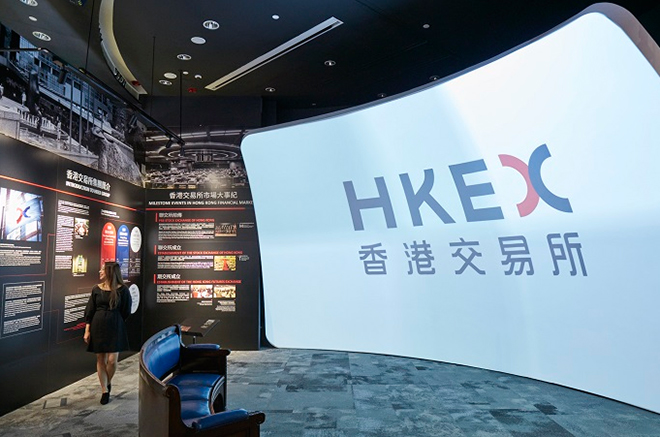Featured Topics
Featured Products
Events
S&P Global Offerings
Featured Topics
Featured Products
Events
S&P Global Offerings
Featured Topics
Featured Products
Events
S&P Global Offerings
Featured Topics
Featured Products
Events
Financial and Market intelligence
Fundamental & Alternative Datasets
Government & Defense
Professional Services
Banking & Capital Markets
Economy & Finance
Energy Transition & Sustainability
Technology & Innovation
Podcasts & Newsletters
Financial and Market intelligence
Fundamental & Alternative Datasets
Government & Defense
Professional Services
Banking & Capital Markets
Economy & Finance
Energy Transition & Sustainability
Technology & Innovation
Podcasts & Newsletters
27 Apr, 2022
By Rebecca Isjwara and John Wu
 |
| HKEX recorded a 31% year-over-year decline in profits in the first quarter of 2022. Source: Hong Kong Exchanges and Clearing Ltd. |
Hong Kong's stock exchange operator expects trading to remain muted and the sluggish market for equity fundraising to continue after reporting its biggest year-over-year net profit decline since 2016.
"We were not immune to global market sentiment which resulted in some softness in the IPO market, reduced valuations in our investment portfolio and pricing volatility in our commodities market," Hong Kong Exchanges and Clearing Ltd. CEO Nicolas Aguzin said in an April 27 earnings filing.
Trading revenue fell 35% year over year to HK$146.5 billion, although it was up 16% from the previous quarter. The exchange operator said market sentiment has been affected by uncertain geopolitical tension, elevated inflation risk and the higher interest rate environment. Although trading volumes in the first quarter were higher than the previous quarter, the effect was offset by lower net investment income, the bourse said.
Lackluster trading
Income from the connect programs with Shenzhen Stock Exchange and Shanghai Stock Exchange, which allow mainland China and Hong Kong investors to trade in each other's markets, fell 13% year over year to HK$641 million.
Hong Kong investors traded securities worth 105.9 billion yuan in mainland China in the quarter, down 16% from the prior-year period. The turnover of mainland China investors trading in the Hong Kong market dropped 42% to reach HK$35.5 billion in the first quarter.
A wave of COVID-19 infections swept across Hong Kong in 2022, triggering the strictest social distancing measures since the beginning of the pandemic. In mainland China, Shanghai has been under a lockdown since late March and Beijing began mass testing on April 25 as China battles a rise in cases that are expected to drag on the economy.
The outbreak, coupled with headwinds such as rising U.S. interest rates, poses risks to investor sentiment, said Lorraine Tan, director of equity research in Asia for Morningstar.
IPO slump
In the first quarter, the exchange helped 17 companies raise a combined HK$14.9 billion in IPO proceeds, an 89% drop from the prior-year quarter. Out of that total, 48% of IPO funds came from new economy and biotechnology companies, the exchange said. The bourse on March 18 hosted its first special purpose acquisition company listing from Aquila Acquisition Corp., which raised HK$1 billion.
The exchange had more than 180 companies in the IPO pipeline as of April 22, Aguzin said. At least 10 of those are SPAC applications.
In the absence of big-ticket IPOs, the Hong Kong bourse's ranking in terms of fundraising value fell to sixth in the first quarter from second in the prior-year period, according to a survey by accounting firm Deloitte in April.
The decline in listings was due to the regulatory overhang and economic slowdown in China, Nomura said in an April 22 research note. Weak equity market sentiment due to recent COVID-19 lockdowns and less-than-expected policy easing also contributed to the drag, the Japanese brokerage said, adding that it expects total fundraising volume in 2022 to decline by 9% over the previous year.
As of April 26, US$1 was equivalent to 6.56 Chinese yuan.